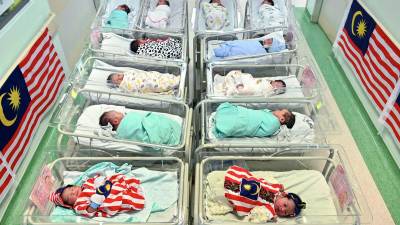ARAU: Malaysia’s Total Fertility Rate (TFR) has declined significantly to 1.7 children per woman in 2023, down from 4.0 in 1980.
The National Population and Family Development Board (LPPKN) warned that this signals a shift towards an ageing population.
LPPKN director-general Datuk Abdul Shukur Abdullah linked the drop to changing lifestyles, higher living costs, and later marriages.
He also noted a growing preference for smaller families among Malaysians.
“Increased participation of women in higher education and the workforce also influences family planning decisions,” he said.
Financial pressures, career priorities, and reproductive health issues were identified as additional contributing factors.
His speech was delivered by LPPKN Research, Population and Family Division director Adzmel Mahmod at the Perlis Population Seminar 2025.
The seminar, themed ‘Perlis Population: Small State, Big Aspirations’, was officiated by Perlis Women, Family and Community Development Committee chairman Wan Badariah Wan Saad.
To address the fertility decline, Abdul Shukur highlighted the government’s Fertility Treatment Assistance and Infertility Advocacy (BuAI) initiative.
The programme includes Intrauterine Insemination (IUI) support to boost birth rates and raise awareness.
Perlis recorded a TFR of 1.7 in 2023, alongside a drop in live births from 4,392 in 2016 to 3,878 last year.
“This seminar is timely to explore policies to slow fertility decline and prepare Perlis for demographic shifts,” he added.
The event focused on population, family development, and human reproduction strategies. – Bernama
